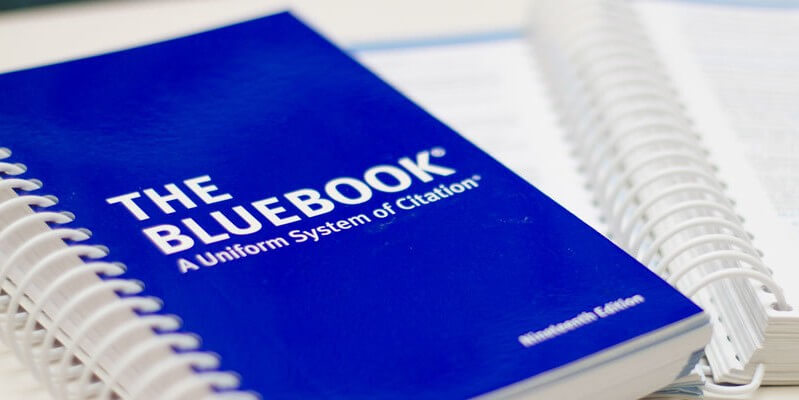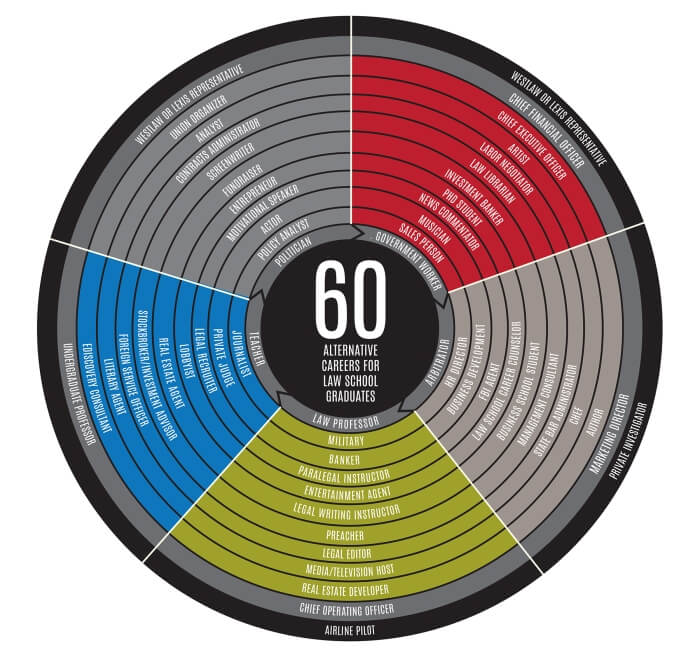
Photo courtesy of the University of Utah.
Summary: Backlash against legal staple the Bluebook has ushered in the rise of the opposing Indigo Book.
In high school and college, we’re all ingrained to write papers using MLA, Chicago, or APA style. But just when we think we got our writing on lock, those who journey to law school are hit with a new style messiah–the Bluebook, a.k.a. A Uniform System of Citation. The legal citation style guide has been around since 1926, and for decades, it was as precious to attorneys as the Bible is to Christians. However, in the past few years, the Bluebook has faced some prominent backlash.
“It is a comically elaborate thicket of random and counterintuitive rules about how to cite judicial decisions, law review articles and the like,” Adam Liptak wrote in the New York Times. “It is both grotesque and indispensable.”
What is the Bluebook?
The majority of law schools use and teach the Bluebook style guide, which is published by legal powerhouses the Harvard Law Review Association, the Columbia Law Review, the University of Pennsylvania Review, and the Yale Law Journal. In addition to being used as a citation guide for law students, it is also the main style guide for federal courts. The book is well-known for its bright blue cover with simple type face.
While the real world for lawyers may use alternative guides, almost every attorney was taught using the Bluebook at one point. Because of its omnipresence and our changing times, people are starting to question the usefulness of the 500+ page tome. After all, why write a 50 word citation when a few words will do?
Why do people hate the Bluebook?
The main controversy of the Bluebook is that its citation style is overly complicated. Influential Federal Judge Richard Posner has been one of the most prominent Bluebook abolitionists since 2011. In a recent ABA Journal article, he didn’t hold back with his animosity towards the current system.
“The first thing to do is burn all copies of the Bluebook, in its latest edition 560 pages of rubbish, a terrible time waster for law clerks employed by judges who insist, as many do, that the citations in their opinions conform to the Bluebook,” Posner said to the ABA Journal.
Posner publically called for a simpler system, and he even created his own, which was published in a Yale Law Journal article years ago. In contrast to the Bluebook’s denseness, Posner’s guide is approximately five printed pages long.
Posner’s belief has been echoed by prominent writers in the legal community such as Ilya Somin. Somin agreed in The Washington Post that doing away with the Bluebook would save lawyers, legal scholars, and law students “time and effort” from reading and using the book’s “useless” rules.
What was the response to the Bluebook backlash?
Because Bluebook is everywhere in the legal community, it has become a profitable enterprise for its publishers. Believing the book’s content should be open source, a group led by New York University professor, Christopher J. Sprigman, created a public domain version of Bluebook called BabyBlue, which of course was met with pushback by Bluebook’s publishers. Sprigman’s camp argued Bluebook’s citation guide was critical to legal infrastructure and therefore not protected under copyright law. Bluebook said that their “carefully curated examples, explanations and other textual materials” was intellectual property.
Bluebook’s publishers sent Sprigman a cease and desist letter, and that attempt to stop BabyBlue caused hundreds of students from schools such as Yale and NYU to revolt by signing a petition. After a lengthy legal back and forth, BabyBlue was finally allowed to be published in early 2016. However, in March of 2016, they announced that they would call their e-book, Indigo Book, instead.












































